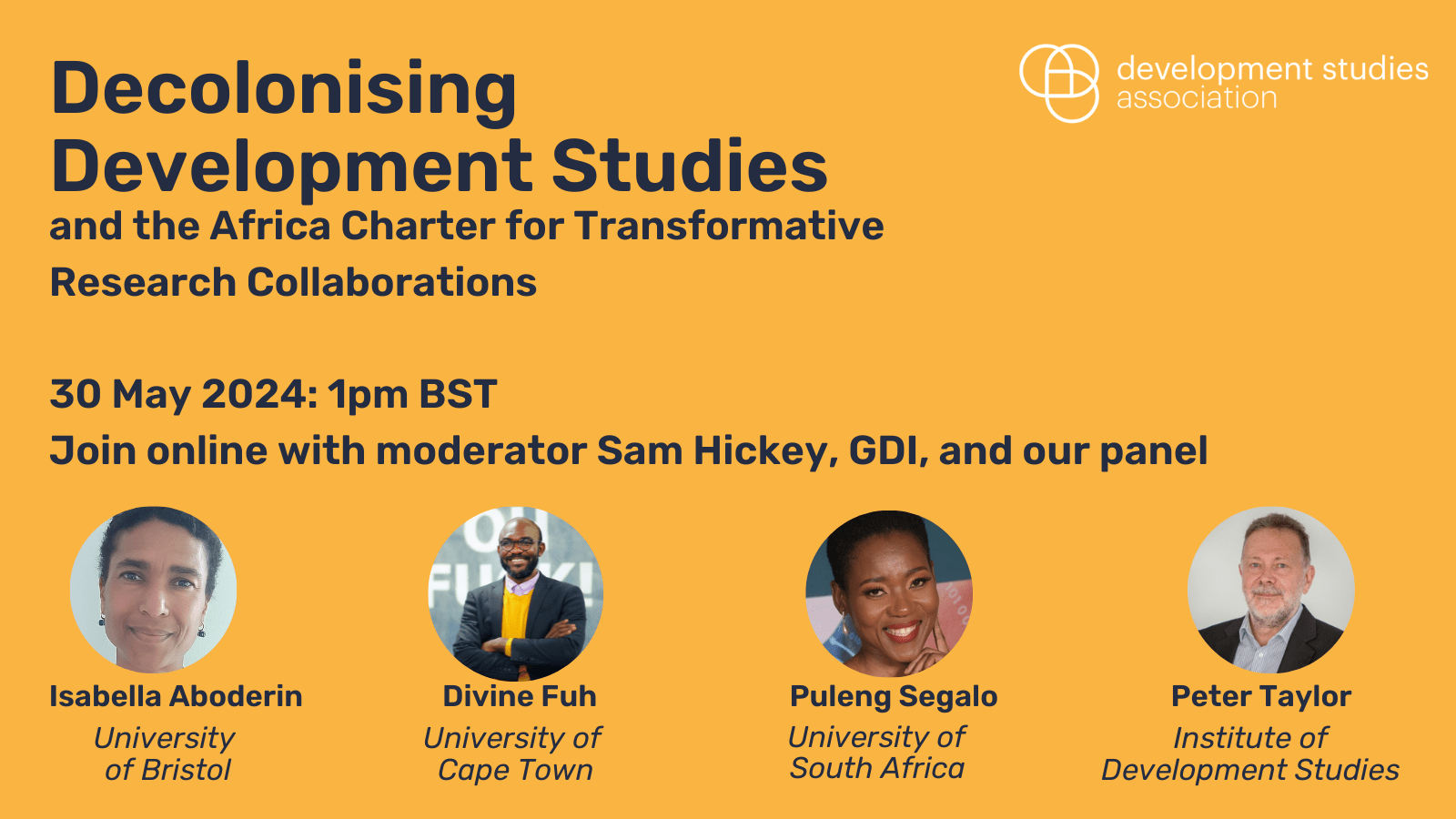The Development Studies Association (DSA) has become the newest signatory of the Africa Charter, and the 111th organisation globally to sign. On behalf of the DSA, Professor Uma Kambhampati, University of Reading, said:
“The DSA has long recognised the epistemic inequities in knowledge production that have been and continue to be sustained in academia. We recognise that the development studies community has done a lot of work in this area but feel that there has been limited progress in challenging these inequities with action. Becoming a signatory of this charter is a further step in moving forward to challenge these issues and bring to the fore solutions that help transform research collaborations. We recognise that the Charter is only the start of a much larger initiative and we look forward to being a part of this process to make change happen.”
The Development Studies Association is the UK based membership association for all those who research, teach and study global development issues. Sixty-six percent of members are from the global South. As an association, the DSA has made steps to understand inequities through study group work, work on race and equity via the DSA’s governing Council, and supporting the activities of its member institutions. At their annual conference in June, the DSA launched a database on decolonisation activities to co-ordinate efforts.
PARC has worked closely with the DSA in recent months to co-convene a webinar on Decolonising Development Studies, which had more than 500 attendees. Professor Isabella Aboderin, PARC Director, said:
“We’re incredibly pleased and excited that the DSA has signed the Charter – its community is a hugely important constituency in shaping thinking and debate on UK relations and engagement with Africa – and the question of ‘development’, broadly. The DSA’s endorsement will open significant spaces for advancing a realisation of Charter principles and aspirations.”
PARC’s Research Associate, Dr Eyob Balcha Gebremariam, who organised the webinar, added:
“We believe the Africa Charter will nurture more nuanced views and perspectives on the decolonisation debate. It will help us look at how the knowledge(s) in development studies are valued, created and disseminated, the institutional arrangements and the power imbalances among individuals (groups of individuals) involved in the knowledge cultivation processes.”
The DSA joins other recent UK signatories including the University of Bath. As mandated by the Africa Charter’s steering group, PARC and its partners will work with the full cohort of signatories with the aim of transforming the current Community of Interest into a Community of Action.

Photo of pens by Kelly Sikkema on Unsplash

